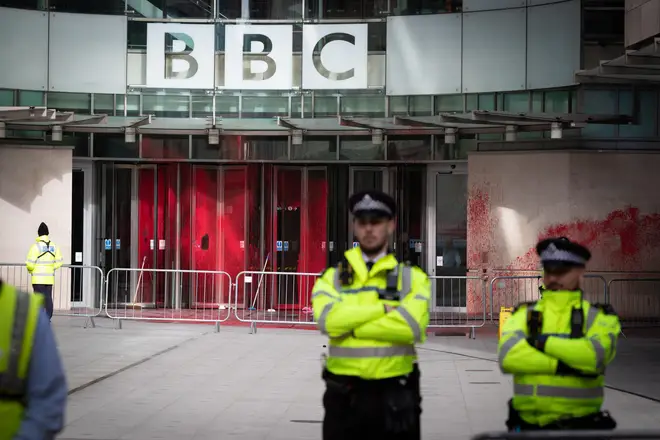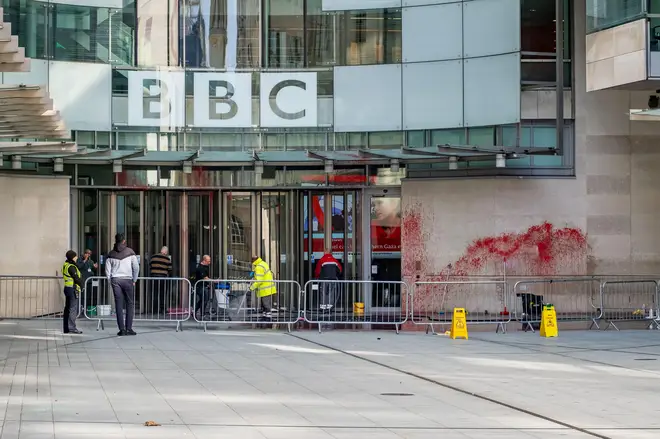
James O'Brien 10am - 1pm
24 November 2023, 21:06

Some Jewish members of staff at the BBC feel they have been barred from joining a march against anti-Semitism in London this weekend.
Around 50,000 people are expected to take part in a march led by the Campaign Against Antisemitism on Sunday. The event is expected to be the largest British display against anti-Semitism since the Battle of Cable Street in east London in 1936. Anti-Semitism has soared in the UK since the start of the war.
But corporation staff working in news and current affairs and factual journalism, as well as senior leaders, have been told they cannot go to the march because of the BBC's strict rules on impartiality, the Times reported.
The rules set out that people working in those wings of the BBC should not take part in public demonstration about controversial issues.
People who wanted to take part in pro-Palestine marches were also told they couldn't go to the events.
Read more: Woman bursts into anti-Semitic tirade on bus after Palestine protest on Armistice Day

Staff wanting to go to the march against anti-Semitism protested that the rules should not apply in this case.
But they were told that the event does not count as "commemorative or celebratory" - instead being classed as "a controversial march or demonstration".
Some members of staff at the corporation took issue with this categorisation.
One said: "Racism is racism and something we should all abhor — but not when it comes to anti-Jewish racism it seems.
"If the BBC believes that racism is racism and not acceptable in any shape or form then going on a rally against antisemitism shouldn’t be an issue."

They contrasted the broadcaster's stance on this issue with its previous position on attending Pride marches.
Director-general Tim Davie told staff in 2020: "Attending Pride parades is possible within the guidelines, but due care needs to be given to the guidance and staff need to ensure that they are not seen to be taking a stand on politicised or contested issues.
"Attending Pride parades is possible within the guidelines, but due care needs to be given to the guidance and staff need to ensure that they are not seen to be taking a stand on politicised or contested issues," he said.
Some workers at the BBC argued that protesting anti-Semitism was not comparable to supporting Palestine.
One said: "Antisemitism is not the same as overtly political support for Palestinians.
"You can object to Israeli political positions and reactions but fundamentally resurrecting antisemitic tropes and Jew hatred is a completely different matter."

A second person said: "You would have thought that antisemitism was pretty straightforward. The world has turned on its head."
Others played down the issue, arguing that BBC staff should avoid getting involved in issues that could be seen as controversial.
The BBC have already faced criticism for their coverage of the Israel-Hamas war, after not referring to Hamas as terrorists. It has also been criticised by Palestine supporters for what they see as pro-Israel bias.
March organisers Campaign Against Antisemitism said: "Given the BBC’s record of coverage of matters relating to the Jewish community, it is almost plausible that rallying against antisemitism would be in breach of the broadcaster’s guidelines.
"The purpose of the march is to show solidarity with Jewish people at a time of some of the highest levels of antisemitism in a generation. Clearly, if these reports are accurate then it is an outrageous restriction for the BBC to place on its employees. Part of the problem that British Jews are facing is that antisemitism has somehow become a matter of debate with two sides. The BBC must urgently clarify which side it is on."